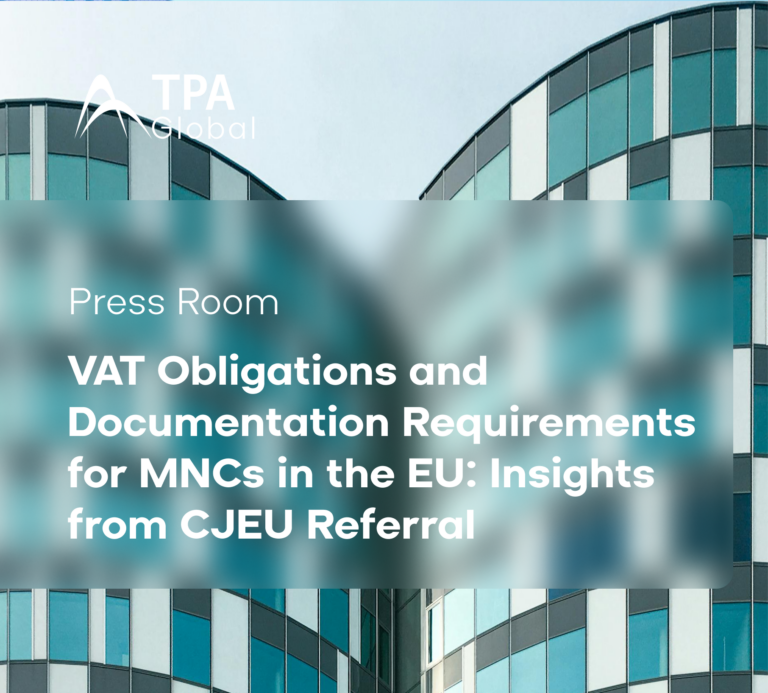In the ever-evolving landscape of global tax regulations, the United Kingdom is aiming to be at the forefront with its recent draft amendments to the Pillar Two legislation. These changes, published on 27th September 2023, offer further insights into the Undertaxed Profits Rule (UTPR) and other related amendments. This article looks into these modifications, addressing the latest Administrative Guidance from the G20 – Organisation for Economic Co-operation and Development (OECD) inclusive framework issued in July and the observations made by stakeholders regarding the Finance Act and L-Day publications.
UTPR – A Closer Look
The UK Multinational top-up tax (MTT) regime now incorporates the UTPR alongside the Income Inclusion Rule. A notable change is that any UK member can now be designated as a chargeable entity for UTPR purposes if there’s an ‘untaxed amount’ involved. One intriguing aspect of the amendments is the UTPR transitional safe harbour election, which aligns with the July AG. Under this provision, when a jurisdiction’s combined nominal corporate tax rate exceeds 20 percent, the ‘untaxed amount’ is treated as zero during the accounting period beginning on or before 31st December 2025 and ending before 31st December 2026, with a maximum duration of 12 months. However, it’s important to note that this election doesn’t apply to domestic Top-Up Tax (DTT).
This transitional safe harbour proves beneficial when the Ultimate Parent Entity’s profits are subject to a low Effective Tax Rate (ETR) for GloBE purposes, the Multinational entity Group’s UPE is in a jurisdiction without a qualifying domestic minimum top-up tax (QDMTT), and there’s a Constituent Entity (CE) subject to UTPR in 2025 or earlier. But, a caveat exists – opting for the UTPR transitional safe harbour could render the UPE ineligible for the Transitional CbCR Safe Harbour due to the ‘once out, always out’ approach.
Partnerships and Their Evolving Role
Amendments to Section 259 clarify that a partnership does not encompass any body corporate. The new Section 232A outlines rules for identifying a partnership, regardless of changes in its membership, ensuring continuity in the treatment of partners and administrative obligations, even if the partnership ceases to exist. Section 268A extends these rules for DTT purposes.
Moreover, these amendments expand the MTT obligations and potential penalties to other partners in a partnership (excluding limited liability partnerships) if the filing member fails to meet their obligation. They also allow partners to be held liable for MTT and DTT, aligning with the definition of a chargeable person. Additionally, a partner who settles a liability in connection with the partnership can recover the amount from other partners.
Crucial Role of Tax Credits
Tax credits play a pivotal role in shaping the jurisdictional Effective Tax Rate (ETR) calculation and can result in a top-up tax for multinational groups. The draft legislation introduces a new category, the ‘marketable transferable tax credit’ (MTTC). This credit is advantageous, both reducing the jurisdictional ETR and increasing the GloBE tax base. Importantly, the rules for MTTCs closely mirror those from the July AG, creating consistency for multinational groups dealing with marketable and transferable tax credits.
Permanent Establishment (PE) – Clarifying Attribution
Amendments to Section 159 make it clear that amounts properly attributable to a main entity should not be reflected in the underlying profits of any PEs of that entity. Additionally, a new subsection provides guidance on reflecting amounts in PEs’ underlying profits, irrespective of their tax treatment.
Controlled Foreign Companies (CFC) – Expanding the Definition
A new term, ‘CFC entity,’ is introduced to facilitate the allocation of tax from a CFC to permanent establishments or disregarded entities associated with that CFC.
Substance-Based Income Exclusion (SBIE) – Addressing Challenges
The updated draft legislation addresses location, simplification, and impairment concerns raised in the July AG. However, it leaves a placeholder regarding the treatment and valuation of operating leases for SBIE purposes, awaiting further provisions.
Currency Conversion Rules – Seeking Clarity
The draft legislation aligns with the guidance provided in the July AG for currency conversion. It specifies the use of the presentation currency for consolidated financial statements, the use of authorized accounting standards for currency conversion, and the average exchange rate for specific comparisons.
Domestic Top-Up Tax (DTT) – Clarifications Galore
The draft legislation includes clarifications for DTT, aligning with the July AG, which is particularly important since these rules come into force from 2024 onwards.
QDTT Safe Harbour – Simplifying Compliance
Introducing the concept of a QDTT safe harbour election, this provision allows multinational groups to compute their top-up tax liability once, reducing compliance burdens. HM Treasury is expected to release regulations specifying accredited QDTT.
Conclusion
The UK’s updated Pillar Two legislation presents significant changes that will shape the landscape of global tax compliance. These amendments, aligned with international guidelines, offer greater clarity for multinational groups. As tax professionals and investors navigate this complex terrain, staying informed and adapting to these changes is of paramount importance. These revisions bring both challenges and opportunities, making it essential for stakeholders to keep a close watch on further developments in this ever-evolving tax landscape.
To keep updated on news, visit our Global News Page.
Don’t miss our most recent updates and articles; follow us on LinkedIn.



